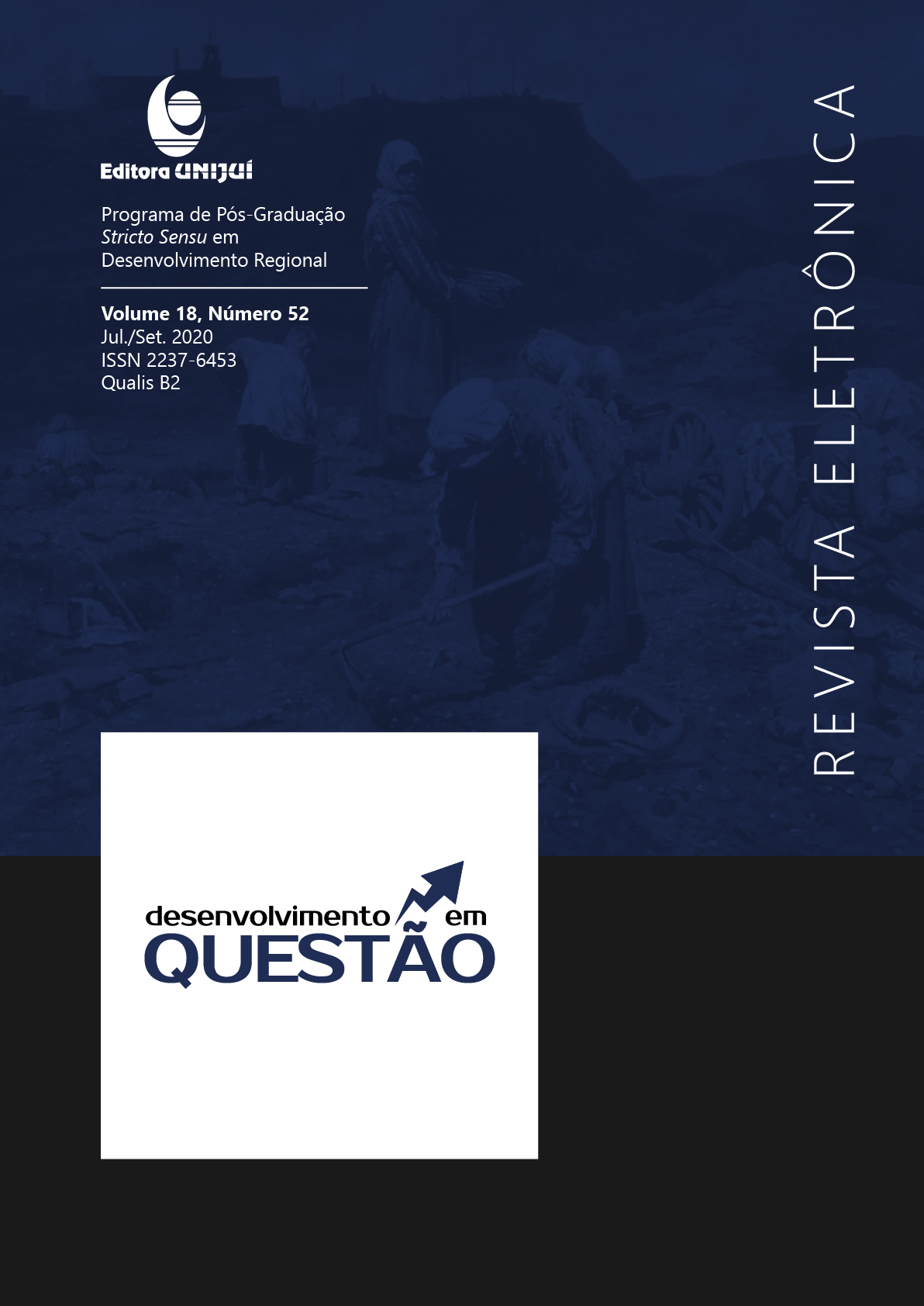PUBLIC POLICY OF TOURISM AND LOCAL DEVELOPMENT: ANALYSIS UNDER THE HUMAN SCALE APPROACH
DOI:
https://doi.org/10.21527/2237-6453.2020.52.142-158Keywords:
Human Scale. Public Policies. Tourism. State of Bahia. Local Development.Abstract
Since the end of the 19th century, several approaches on the topic of development have been discussed in the academic literature, the approach to development associated with economic strategies. However, since the 1980s, other approaches have been gaining academic space, which has shifted to space for approaches with a social focus, involving themes covering political policies directed towards education, health, sanitation, leisure, etc. development scenario, with social characteristics, that search authors seek to analyze the satisfaction of basic human needs. For study purposes, use the Max-Neef Human Scale approach (1994) as a central factor in the study of public policies related to the tourism sector in the State of Bahia. Given the above, a research has the general objective of proposing an analytical structure for the evaluation of public tourism policies, as an agent for promoting local development, from the perspective of the Human Scale. To do so, choose the PROETUR results analysis feature, considered one of the main actions related to the National Tourism Policy. A methodological option for evaluating social and economic indicators associated with the concept of human scale. The results found point to the pertinence of the proposed structure from this perspective, pointing out a necessary need for public tourism policies, prioritizing its attention as tourist areas furthest from the Bahian coast.
Downloads
Published
How to Cite
Issue
Section
License
By publishing in Revista Desenvolvimento em Questão, authors agree to the following terms:
All works are published under the Creative Commons Attribution 4.0 International License (CC BY 4.0), which allows:
Sharing — to copy and redistribute the material in any medium or format;
Adaptation — to remix, transform, and build upon the material for any purpose, even commercially.
These permissions are irrevocable, provided that the following terms are respected:
Attribution — authors must be properly credited, a link to the license must be provided, and any changes made must be indicated.
No additional restrictions — no legal or technological measures may be applied that legally restrict others from doing anything the license permits.
Notices:
The license does not apply to elements that are in the public domain or covered by legal exceptions.
The license does not grant all necessary rights for specific uses (e.g., image rights, privacy, or moral rights).
The journal is not responsible for the opinions expressed in the articles, which are the sole responsibility of the authors. The Editor, with the support of the Editorial Board, reserves the right to suggest or request modifications when necessary.
Only original scientific articles presenting research results of interest that have not been previously published or simultaneously submitted to another journal with the same purpose will be accepted.
Mentions of trademarks or specific products are intended solely for identification purposes and do not imply any promotional relationship by the authors or the journal.
License Agreement (for articles published from 2025 onward): Authors retain the copyright to their article and grant Revista Desenvolvimento em Questão the right of first publication.











